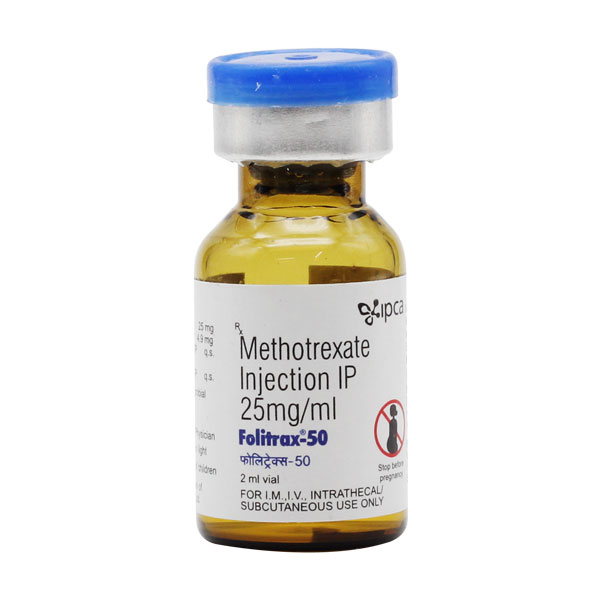Methotrexate Injection: Benefits and Uses
Methotrexate injection is a medical treatment widely used for various conditions. This comprehensive guide explores the uses, benefits, dosages, and considerations surrounding methotrexate injections.
Exploring Medical Conditions Treated with Methotrexate Injection
Rheumatoid Arthritis and Methotrexate: Learn how methotrexate injections are commonly prescribed to manage symptoms of rheumatoid arthritis, including joint pain, inflammation, and improved joint function.
Psoriasis and Psoriatic Arthritis: Discover how methotrexate injections play a role in treating psoriasis by reducing skin cell turnover and addressing symptoms of psoriatic arthritis, promoting skin health and joint relief.

How Methotrexate Injection Works: Mechanism of Action
Inhibiting Rapid Cell Growth: Methotrexate is an antimetabolite that hinders the rapid division of cells, which is especially beneficial in conditions like psoriasis and rheumatoid arthritis where cell turnover is heightened.
Methotrexate Injection Dosage and Administration
Individualized Dosages: Methotrexate injection dosages vary based on the condition being treated and individual patient factors. Nephrologists tailor doses to achieve optimal therapeutic results while minimizing side effects.
Injection Techniques and Frequency: Learn about the proper injection techniques and the frequency of administration, whether it’s a weekly, bi-weekly, or monthly schedule, depending on the specific medical condition.
Potential Side Effects and Precautions
Common Side Effects: Explore possible side effects such as nausea, fatigue, and hair loss. While these effects are often temporary, consulting a healthcare professional about managing them is crucial.
Monitoring and Precautions: Understand the importance of regular monitoring while on methotrexate, including blood tests to assess liver function and other relevant health parameters. Adhering to precautions can ensure a safe treatment journey.
Methotrexate Injection: Considerations for Special Populations
Pregnancy and Lactation: Discover the implications of methotrexate injections for pregnant and breastfeeding individuals, as well as precautions to ensure the safety of both mother and child.
Elderly and Pediatric Patients: Learn how methotrexate doses and monitoring may differ for elderly individuals and children, considering their unique physiological responses and potential risks.
Lifestyle and Dietary Recommendations
Alcohol and Methotrexate Interaction: Explore the potential interaction between methotrexate and alcohol. Discover why alcohol consumption should be moderated or avoided during treatment.
Folic Acid Supplementation: Learn about the role of folic acid in mitigating side effects and how healthcare providers may recommend folic acid supplements alongside methotrexate.
Methotrexate Injection: Frequently Asked Questions (FAQs)
Exploring Common Queries: Get quick answers to frequently asked questions, including queries about methotrexate’s effectiveness, potential interactions, and safety concerns.
Frequently Asked Questions (FAQs) About Methotrexate Injection
What is a methotrexate injection used for?
Methotrexate injections are commonly used to treat conditions like rheumatoid arthritis, psoriasis, and psoriatic arthritis. They help manage symptoms and improve quality of life.
How does a methotrexate injection work?
Methotrexate inhibits cell growth, particularly in rapidly dividing cells like those found in the skin and joints. This property makes it effective in treating conditions characterized by excessive cell turnover.
Are there alternatives to methotrexate injections?
Yes, depending on the condition being treated, there might be oral forms of methotrexate or alternative medications that your healthcare provider can recommend.
How often do I need to take methotrexate injections?
The frequency of methotrexate injections varies depending on the medical condition and your doctor’s recommendation. It can range from once a week to monthly.
What are the potential side effects of methotrexate injections?
Common side effects include nausea, fatigue, hair loss, and mouth sores. Serious side effects are rare but can include liver problems and lowered blood cell counts.
Can I drink alcohol while on methotrexate injections?
It’s advisable to limit alcohol consumption or avoid it altogether while on methotrexate. Alcohol can increase the risk of liver damage and worsen side effects.
Should I take folic acid with methotrexate injections?
Yes, folic acid supplementation is often recommended by healthcare providers to help reduce the side effects of methotrexate, such as nausea and fatigue.
Is methotrexate safe during pregnancy?
Methotrexate is generally not recommended during pregnancy as it can harm the developing fetus. If you’re pregnant or planning to become pregnant, discuss alternatives with your doctor.
Can I continue taking other medications while on methotrexate injections?
It’s important to inform your doctor about all the medications you’re taking to avoid potential interactions. Some medications may interact with methotrexate and affect its effectiveness or safety.
How long does it take to see results from methotrexate injections?
The timeframe for experiencing improvements varies based on the medical condition being treated. Some individuals may notice benefits within a few weeks, while others may require a longer period.
Conclusion:
Balancing Benefits and Risks: Methotrexate injections have proven to be a valuable treatment option for a range of conditions. Consulting a healthcare professional and adhering to their guidance can lead to successful outcomes.




